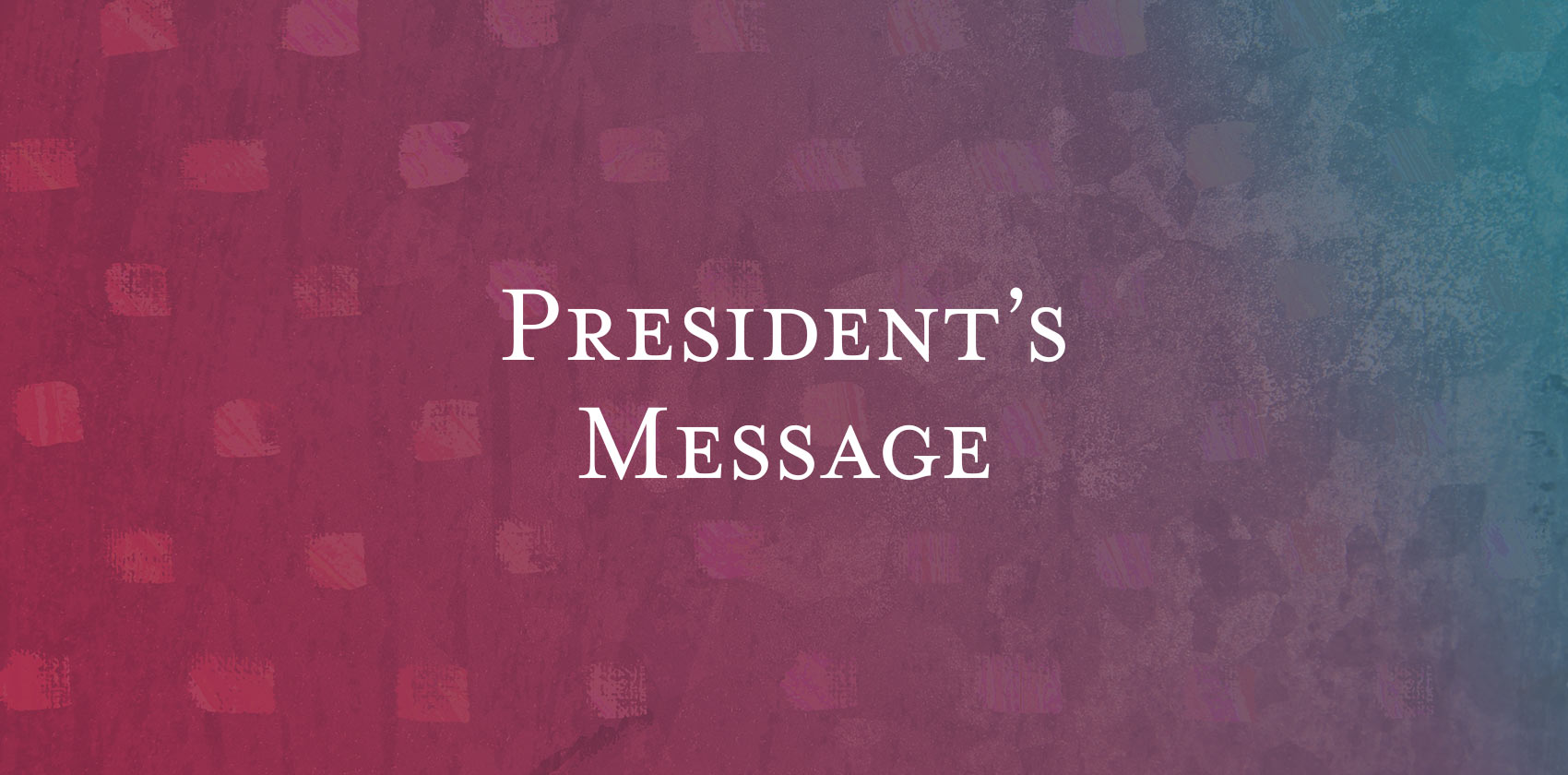
Vice President’s Message
You Are an Emotional Labourer
Opening remarks given by Vice President Adrian Tan at the Family Law Conference 2019.
The First Time I Spoke to a Lawyer
When I was a teenager (which I believe was only a couple of years ago), my parents divorced.
They both worked as school teachers. They married young. They bought a flat in Commonwealth Close. They had my brother and me. Then they broke up.
I think they tried hard to make it work, but, candidly, I wouldn’t have known. I was too young, immature and self-centred to understand what was going on.
My parents each hired lawyers. Everything became fraught. My brother and I lived with my mum. She did her best to cope, but the atmosphere at home was a mix of worry, confusion and fear. My mum was sad, but she soldiered on. The family home was divided and sold. We moved to another flat (in wonderful Jurong), we grew up and completed our education.
I remember, at that time, asking a lot of questions. And when my mum ran out of answers, I decided to speak to her lawyer. He was a patient and kind man, past middle-age, running his own solo practice. Although he did everything right, I recall becoming quite upset with him, and asking him many things about how life would be for our family after the divorce. When he had no answers that satisfied me, I remember saying, “But this is your job!”
And I still remember his answer. He calmly said, “No, actually, it’s not my job. But I will try my best to tell you what is going on.”
Looking back, I am amazed that he took time to speak to me (after all, I wasn’t actually his client), and to shine a little light at a dark time. Above all, I am amazed at his attitude. I don’t think he gave time just to me. I imagine that day after day, year after year, throughout his career, he would make time to answer questions from troubled teenagers for whom everything just became too real.
Lawyers Provide Emotional Labour
Today, I am a lawyer, like him. From time to time, I think about him. And when I do, I find myself asking this question: when we perform our jobs, what is it that we really offer?
Some jobs are straightforward. A labourer offers his labour. A computer programmer delivers programs. A cook prepares meals.
Those types of jobs don’t require you to evoke feelings in others, or suppress feelings in yourself.
But there are other jobs that do.
Sociologist Arlie Hochschild coined the term “emotional labour” in her 1983 book, The Managed Heart. Emotional labour is the process of managing feelings and expressions to fulfil the emotional requirements of a job.
Emotional labour occurs when we are required to project a certain feeling as part of our job function.
It also occurs when we are required to suppress a certain feeling, again as a function of our work.
There are a number of occupations which require emotional labour. Sociologists have studied flight attendants, childcare workers and wait staff who have to appear cheerful and engaged, in order to engender positive feelings in customers and patients.
But they have also studied bill collectors, who are the opposite. Bill collectors are selected and trained to show irritation to debtors, in order to induce repayment.
So, emotional labour occurs when, as part of your job, you have to appear happy, when you are not, or upset, when you are not. It occurs also when you suppress your own feelings, as part of your work. And it occurs when you have to change the emotional state of another person.
I think anyone involved in family law would qualify as an emotional labourer: judges, lawyers, social workers. Certainly, my mum’s lawyer did.
Family lawyers stand in the front line, as first responders, day after day, navigating a legal process, ensuring a fair outcome, while all the time managing their own emotions, as well as the emotions of others.
Why Family Lawyers Matter
It’s a massive juggling act. When I was in university, a couple of years ago, studying the subject of family law, I thought that it was easy. No one told me that family practice was this hard.
Then, when I went into practice, I found that senior lawyers would take on complex construction disputes, or high-stakes shareholder fights, or political suits. But they would not dare touch family law. A hardened criminal lawyer told me he would readily represent hardened murderers and drug traffickers, but would never step into family court.
Why? Because it is tough. It is demanding. It is emotional labour.
So why do family lawyers do it, day after day, year after year?
“If you specialise in family law, you will become crazy rich.” No one has ever said that. No one will ever make such a statement.
So if family law practice is not lucrative, then how is it attractive? Is it fun?
It most certainly is not fun. But it is better than that. Family law is meaningful.
At a time when a family is spiralling out of control, and things are falling apart, the family lawyer is there to help us regain our balance, hold things together, and then start moving forward. The family lawyer plays a critical role in the process of healing and rebuilding family relationships.
In so doing, you, the family lawyer perform that tough emotional labour that the more prosperous or more famous lawyers cannot. You become counsel, as well as counsellor.
Staying Strong
You, the family lawyer, are able to provide emotional labour because you have three qualities.
First, emotional intelligence, in that you read people and read situations, and understand what is needed at a particular time.
Second, emotional capital. You draw from a wealth of life experience, of triumphs and failures, of personal journeys, so that you have something to give your clients.
Third, emotional courage. To me, that is your best quality. Family lawyers do not hide. You show up. You are there for your clients. You are available.
But there is a price to be paid for all that emotional labour. Family lawyers are all too human.
You give so much of yourselves that you can become emotionally drained, and exhausted. You suppress your own feelings so often that you can become emotionally disconnected. Ultimately, this might affect your personal relationships, or lead to career burnout. The other party may attack you, and file complaints against you, for tactical reasons, in order to crush your spirit.
We cannot afford this. The one kind of lawyer that cannot be replaced by robots or artificial intelligence is you, the family lawyer. We may have driverless cars, or cashierless supermarkets, or robotic surgeons. But we are all human beings. And in our emptiest moments, we have an emotional hunger that only can be filled by another human being. We need someone to talk to, or just sit with us while we figure things out.
So, my hope for you is that you remain healthy and strong. As emotional labourers, you need to care for your physical, as well as emotional, health. For the emotional labourer, your biggest muscle is your heart. Keep it strong by talking to your fellow practitioners. Maintain your private life and your own relationships. Keep that sense of humour. You represent the best of us, selfless, brave and strong. The legal system needs you. Society needs you. Families need you.
Tags:
L1
Adrian Tan
President (January 2022 to July 2023)
The Law Society of Singapore
President (January 2022 to July 2023)
The Law Society of Singapore






